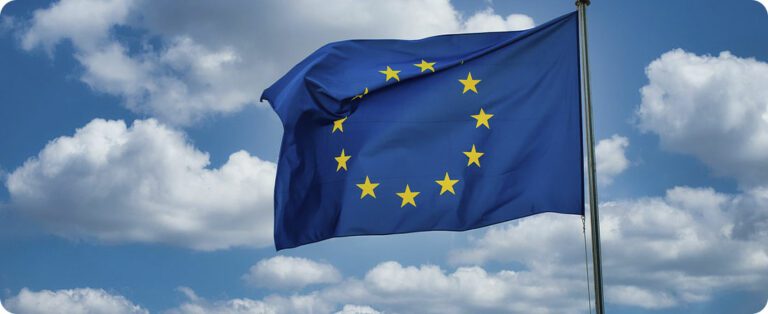Analyzing the effects of Law No. 13,123/15, Biodiversity Law, on the babassu production chain was the main agenda of the work meeting held last Thursday, 12/12, at Casa da Indústria Albano Franco, with the presence of industries babassu oil producers from Maranhão, representatives of the Federation of Industries of the State of Maranhão (FIEMA), employers' unions and public authorities. The action was a joint initiative of the Ministry of the Environment in partnership with FIEMA and the Intermunicipal Union of Vegetable Oil and Chemical and Pharmaceutical Products Industries in the State of Maranhão (Sindóleo).
Led by the president of FIEMA's Thematic Industrial Policy Council (COPIN), Luiz Fernando Renner, also director of Sindoleo, and Raimundo Gaspar, president of Sindoleo, the meeting brought to São Luís, as well as businesspeople from the interior of the state, Piauí and Tocantins to discuss with the general coordinator of Normative Acts and Decision-Making Processes of the Department of Support for the Genetic Heritage Management Council (DCGEN) of the Ministry of the Environment (MMA), Maira Smith and the environmental analyst of the Department of Genetic Heritage of the MMA , Ana Luzia de Alencar Assis, in addition to the senior broker at Aboissa Commodity Brokers, Heitor Augusto Pereira, the impacts of the law on the babassu industries, which provides for access to genetic heritage, protection and access to associated traditional knowledge and the sharing of benefits for the conservation and sustainable use of biodiversity.
The initiative brought together representatives from the private sector and public authorities, including the deputy secretary of State for Industry, Commerce and Energy of Maranhão (Seinc), Luiz Rodolfo Rodrigues, the environmental specialist, Antônio Fernandes Cavalcante Jr., the president from the Union of Oil, Soap, Candles and Chemical and Pharmaceutical Products Industries of Caxias, Codó, Pedreiras, Bacabal and Lago da Pedra (Sindicocal), Edivan da Silva Amâncio, among other industrial entrepreneurs, the pro-rector of the Innovation Agency, Entrepreneurship, Research, Postgraduate Studies and Internationalization (Ageufma), Fernando Carvalho Silva, and Roberto Porro, anthropologist and agronomist, researcher at Embrapa Amazônia Oriental.
The president of COPIN, Fernando Renner, represented the president of FIEMA, Edilson Baldez and opened the meeting by presenting his objectives. “This meeting is a working meeting to hear from Babassu Oil manufacturers about the effects of the biodiversity law on the production chain of this oilseed. Businesspeople here will have the opportunity to present their problems!” Renner also highlighted that on the 4th of this month, a Babaçu Oil Thematic Chamber was created at the Genetic Heritage Management Council – Cgen of the MMA, coordinated by the CNI, to analyze the problems created by Law 13.123/15 on the oil market. babaçu, which suffered a strong retraction from large buyers in the national market since November/18, who replaced it with Palm Kernel Oil, with similar physical-chemical characteristics to our oil. This Thematic Chamber must suggest solutions to be submitted and approved by CGen.
THE PROBLEM – Among other requirements, such as Registration of companies, Notification of finished products, in addition to strong sanctions and fines for non-compliance or omission, the new legislation determines the Department in Bbenefits applied The lastthe step da cadeithe productive, that is, about the finished product or reproductive material, calculated at the rate of 1% on the annual net revenues of products placed on the market and which have in their composition, in any proportion, assets from our biodiversity such as babassu.
Such burden on the finished product or reproductive material does not occur in the case of material of foreign origin, in the case of palm kernel oil, a by-product of palm, of African origin and which is the biggest competitor to babassu oil and which is not part of Brazilian biodiversity.
José Luiz Portela Leal, a businessman from Timon, highlights with concern the current scenario of the industry that passed on babassu oil to companies that produced soap and soap on the Rio-São Paulo axis. “I think the law created a tax that would be very small at 1%, but in the final sale of the product, it represents 20 times more. Companies that produce final cleaning products, especially soap and soap, are having difficulty knowing how this law works correctly. Because of this, they prefer to buy imported oil that is not subject to this biodiversity law. I have no doubt that this compromised the entire babassu production chain, from coconut breakers to final producers. We have no one to sell to! The chain stopped working at the end. That's what surprised us the most. Today we have the raw material, but we cannot sell it abroad due to this tax. It really broke the chain! If we can't reverse this situation, I won't give the babassu industry 5 years to end in Maranhão”, warned the businessman.
DCGEN's normative acts coordinator, Maira Smith, began her speech by highlighting that the law on access to genetic heritage is a complex law. And the objective of the meeting is to explain to the sectors involved, from babassu coconut breakers to industrialists, in informative workshops how the legislation works and how they can face the problems presented by Sindóleo.
“Since 2015, Brazil has had new legislation that regulates the uses of Brazilian biodiversity by science and the production chain. It is Law 13,123, known as the Biodiversity Law. Its standards define, in the jargon of the area, “access and protection to genetic heritage, access to associated traditional knowledge and the sharing of benefits for the conservation and sustainable use of biodiversity”. The new legal framework was regulated by Decree 8,772/16, on May 12, 2016.
Regarding the problem presented by businesspeople, the representative of the Ministry of the Environment highlighted that “benefit sharing consists of the division of benefits arising from the economic exploitation of a finished product or reproductive material, developed, based on access to genetic heritage or traditional knowledge associated. It is not a tax or fee. It is a new modality that may occur in monetary and non-monetary modalities, with the Law establishing and delimiting negotiation, collection and application according to the type of access that gave rise to the product for which the distribution that is due is due. intended for the National Fund for Benefit Sharing (FNRB), also created by Law No. 13,123/2015, linked to the Ministry of the Environment and will be managed by the FNRB Management Committee and intended for the implementation of the National Benefit Sharing Program (PNRB).
For the Senior Broker at Aboissa Commodity Brokers, Heitor Augusto Pereira, who has worked for over 10 years creating this interface between the industries that benefit babassu and large industrial companies, the biodiversity law “has driven away large consumers who stop buying the oil production becomes lower due to lack of demand, the price of almonds has become unviable for breaking, imported oils such as PKO supply the demand of the domestic market and he questioned the situation of babassu coconut breakers, which is the main source income of different families and communities.
It is worth noting that the world produces more than 8 million tons/year of Palm Kernel Oil while in Brazil the production of Babassu Oil does not exceed 25 thousand tons/year (2018 forecast), with a tendency for sharp drops due to lack of demand. In Maranhão, which once had more than 50 industries producing babassu oil, today it is restricted to just 15 industries located in the municipalities of Vargem Grande, Lago da Pedra, Pedreiras, Poção de Pedras, Timon, Trizidela do Vale and Codó and Caxias
For the MMA representative, the meeting was positive. “We know that the problem is serious and serious and that it involves factors that go beyond the biodiversity law. There is a great interest on the part of our Ministry in helping to face this problem, involving other Ministries so that we can encourage the use of babaçu, which is such an important product in the State of Maranhão.
I think the meeting was valuable because this law is very difficult to understand and it would be excellent if we could hold a meeting with the final buyers of babassu oil to show the real proposal of the law and to avoid any noise that could happen. Our interest is to publicize the law and help with the preparation of registration to facilitate compliance with the legislation”, highlighted Maira.
For the president of Sindóleo, Raimundo Gaspar, the meeting was enlightening, but he noted a difficulty on the part of the government in detailing each of these biodiversity. Our babassu biodiversity is complex because it involves a large number of needy people and we have to resolve it and, at the same time, we cannot burden the manufacturer of the finished product. No businessman will accept being burdened and as he has another option, he will no longer buy babassu”, concluded Gaspar.
Source: FIEMA















